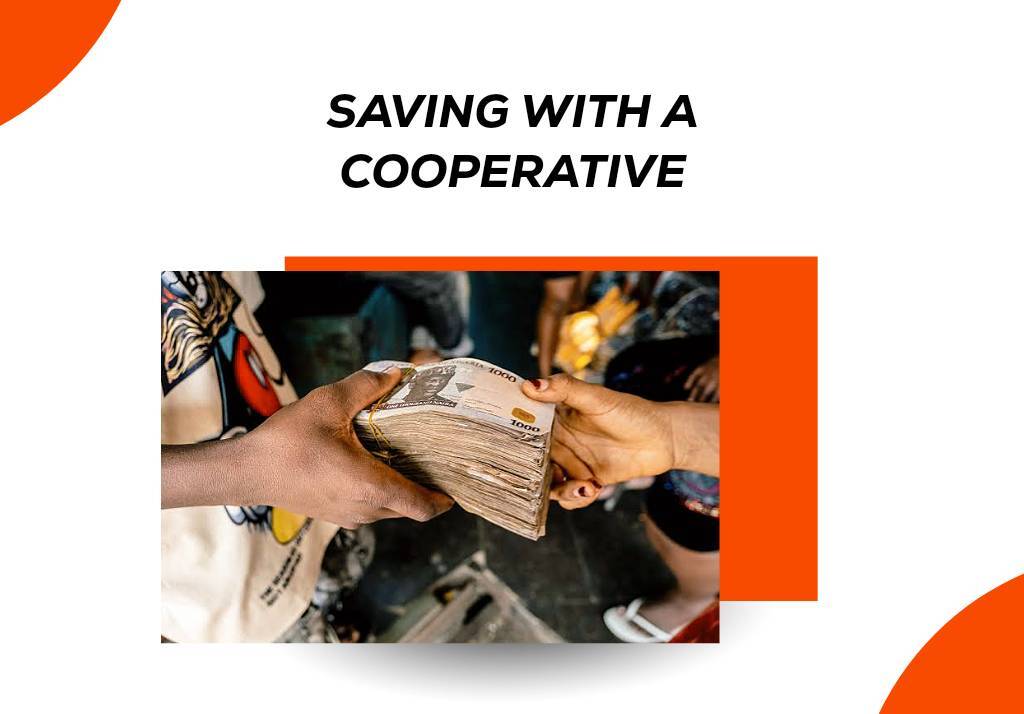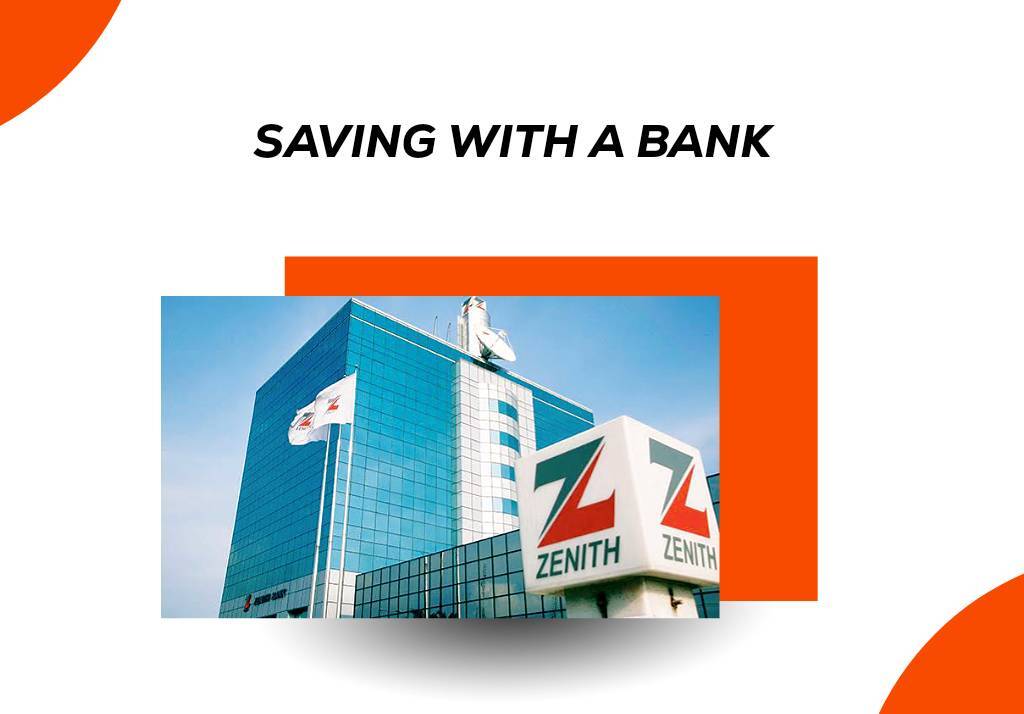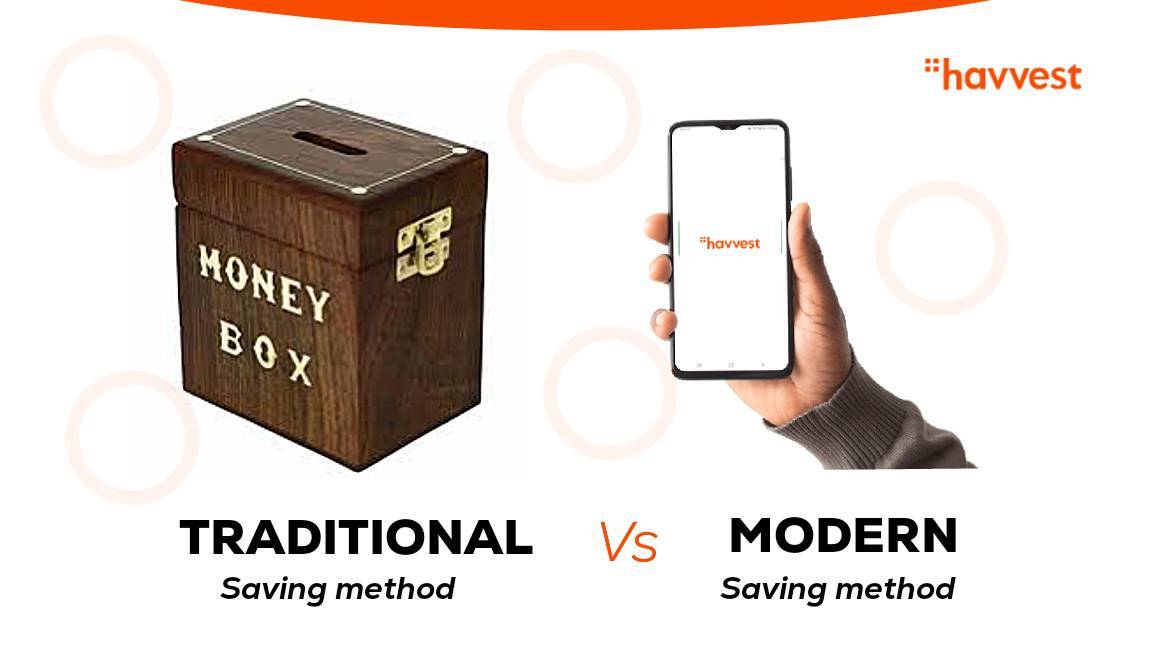The way we save money has changed drastically over the years. In the past, Nigeria was largely a cash-based economy and there were several traditional methods of saving money that were commonly used. These methods included keeping cash under the mattress or in a piggy bank or through collective contributions, commonly known as Ajo.
Over time, inflation and other economic factors diminished the value of these savings methods. Today, however, contemporary methods such as online banking and investing in real estate and mutual funds are becoming increasingly popular and widely practised.
There are a number of advantages and disadvantages to both traditional and modern methods of saving money. Traditional methods are often seen as being more secure, as there is no risk of losing money if the stock market crashes or your bank account is hacked. However, there is always little to no documented interest rate, thus limiting compound interest profits and increasing vulnerability to loss from theft, fires, floods, and other mishaps.
On the other hand, modern techniques of saving money often offer higher interest rates, which may enable you to expand your savings and subsequently make long-term investments.
Below we’ll be expanding on different traditional and modern methods of saving money and let you be the judge of which method you think is befitting for you.
1. Saving at home:

This was perhaps the most popular method of saving money in Nigeria at the time. People would simply keep their money in a safe or hidden place such as under the bed, in clay pots or buried in the ground at home. This was considered a safe and secure way to save money, as people could easily access their funds when needed. However, the money was lost when there were either natural or man-made calamities, which was a drawback to this strategy.
2. Saving with family or friends:

Another common method of saving money was to pool funds together with family or friends. This is known as “ajo“, “adashe” or “esusu” and involves each person contributing a fixed amount of money on a regular basis, with one person receiving the full amount each time. The main benefit of this method of saving is that it encourages discipline.
One of the biggest complaints about this saving method is that if there is no rotation and you are not among the first to receive the contribution, you are depriving yourself of interest income. Secondly, in the event that one of the members defaults, you too run the risk of losing your capital.
3. Saving with a cooperative:

Cooperatives were popular in Nigeria in the 70s and provided a way for people to save money together. Members would contribute a set amount at a predetermined time and would only be able to access their money after a specific period. Contributions to the cooperative were also made, which would then be used to provide loans or other financial services to its members.
This technique helped individuals within the corporate environment develop the habit of saving. Nevertheless, since the majority of those who employed this form of saving were from the lower socioeconomic classes, there was always little to no financial stability and fewer investment opportunities to invest and earn returns.
4. Saving with a bank:

When the banking system was introduced in Nigeria, people were thrilled about the opportunities it offered, or rather, the potential they expected it to bring. There are many uncertainties about how people will be included in the future plans following the recent happenings in the sector.
The adoption of tight rules and regulations by the Central Bank of Nigeria ensures the safety and security of your money in the bank. Additionally, there is simple access to your money through the availability of ATM cards and access to credit facilities. This does not mitigate the shortcomings of this method of saving.
For one, interest rates are often lower than inflation rates, leading to a decrease in the value of savings over time. Additionally, there is a build up of hidden fees such as maintenance fees, transaction fees, and ATM fees that can eat into your savings, as well as the danger of fraud and currency fluctuations which can damage your savings.
5. Saving with Online Financial Institutions:

In Nigeria, there are several benefits to saving with a financial institution, such as security, return on savings, credit availability, simplicity, financial discipline, and insurance coverage. Saving money and managing your finances wisely are important.
Piggyvest, Mono, FairMoney, CowryWise, and Havvest are notable examples of these institutions. The Havvest platform will be the main emphasis. Havvest provides its users with a convenient way to manage their money. Saving and investing are the two primary choices, and both generate interest and returns over time.
Overall, the traditional methods of saving money in Nigeria were largely based on trust and community. People relied on their own resources and the support of family and friends to save money and build their financial security.
While modern methods of saving created new opportunities for financial growth, especially with the provision of interest on savings.
Ultimately, who wouldn’t want to embrace the possibilities that come with contemporary saving methods, particularly Havvest’s. We offer 15% interest (1 Year Savings) and up to 18% returns on investment annually.
Well, you wouldn’t want to miss out on this golden opportunity. If you haven’t registered on Havvest, what are you waiting for? Click on this LINK to get started.

The way we save money has changed drastically over the years. In the past, Nigeria was largely a cash-based economy and there were several traditional methods of saving money that were commonly used. These methods included keeping cash under the mattress or in a piggy bank or through collective contributions, commonly known as Ajo.
Over time, inflation and other economic factors diminished the value of these savings methods. Today, however, contemporary methods such as online banking and investing in real estate and mutual funds are becoming increasingly popular and widely practised.
There are a number of advantages and disadvantages to both traditional and modern methods of saving money. Traditional methods are often seen as being more secure, as there is no risk of losing money if the stock market crashes or your bank account is hacked. However, there is always little to no documented interest rate, thus limiting compound interest profits and increasing vulnerability to loss from theft, fires, floods, and other mishaps.
On the other hand, modern techniques of saving money often offer higher interest rates, which may enable you to expand your savings and subsequently make long-term investments.
Below we’ll be expanding on different traditional and modern methods of saving money and let you be the judge of which method you think is befitting for you.
1. Saving at home:

This was perhaps the most popular method of saving money in Nigeria at the time. People would simply keep their money in a safe or hidden place such as under the bed, in clay pots or buried in the ground at home. This was considered a safe and secure way to save money, as people could easily access their funds when needed. However, the money was lost when there were either natural or man-made calamities, which was a drawback to this strategy.
2. Saving with family or friends:

Another common method of saving money was to pool funds together with family or friends. This is known as “ajo“, “adashe” or “esusu” and involves each person contributing a fixed amount of money on a regular basis, with one person receiving the full amount each time. The main benefit of this method of saving is that it encourages discipline.
One of the biggest complaints about this saving method is that if there is no rotation and you are not among the first to receive the contribution, you are depriving yourself of interest income. Secondly, in the event that one of the members defaults, you too run the risk of losing your capital.
3. Saving with a cooperative:

Cooperatives were popular in Nigeria in the 70s and provided a way for people to save money together. Members would contribute a set amount at a predetermined time and would only be able to access their money after a specific period. Contributions to the cooperative were also made, which would then be used to provide loans or other financial services to its members.
This technique helped individuals within the corporate environment develop the habit of saving. Nevertheless, since the majority of those who employed this form of saving were from the lower socioeconomic classes, there was always little to no financial stability and fewer investment opportunities to invest and earn returns.
4. Saving with a bank:

When the banking system was introduced in Nigeria, people were thrilled about the opportunities it offered, or rather, the potential they expected it to bring. There are many uncertainties about how people will be included in the future plans following the recent happenings in the sector.
The adoption of tight rules and regulations by the Central Bank of Nigeria ensures the safety and security of your money in the bank. Additionally, there is simple access to your money through the availability of ATM cards and access to credit facilities. This does not mitigate the shortcomings of this method of saving.
For one, interest rates are often lower than inflation rates, leading to a decrease in the value of savings over time. Additionally, there is a build up of hidden fees such as maintenance fees, transaction fees, and ATM fees that can eat into your savings, as well as the danger of fraud and currency fluctuations which can damage your savings.
5. Saving with Online Financial Institutions:

In Nigeria, there are several benefits to saving with a financial institution, such as security, return on savings, credit availability, simplicity, financial discipline, and insurance coverage. Saving money and managing your finances wisely are important.
Piggyvest, Mono, FairMoney, CowryWise, and Havvest are notable examples of these institutions. The Havvest platform will be the main emphasis. Havvest provides its users with a convenient way to manage their money. Saving and investing are the two primary choices, and both generate interest and returns over time.
Overall, the traditional methods of saving money in Nigeria were largely based on trust and community. People relied on their own resources and the support of family and friends to save money and build their financial security.
While modern methods of saving created new opportunities for financial growth, especially with the provision of interest on savings.
Ultimately, who wouldn’t want to embrace the possibilities that come with contemporary saving methods, particularly Havvest’s. We offer 15% interest (1 Year Savings) and up to 18% returns on investment annually.
Well, you wouldn’t want to miss out on this golden opportunity. If you haven’t registered on Havvest, what are you waiting for? Click on this LINK to get started.



